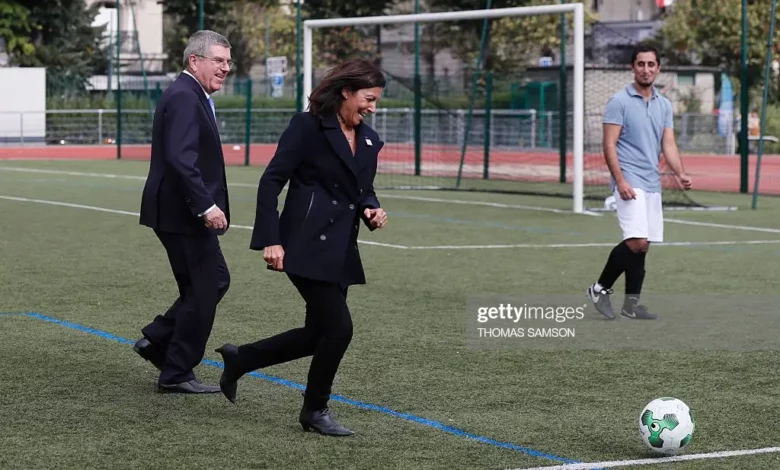
Almost a year-and-a-half years to the day – July 24, 2024, the whistle will blow for the opening matches of the Men’s and Women’s Olympic Football tournaments.
In 2024, Paris will become just the second city to host the Summer Olympic Games three times, after London (1908, 1948 and 2012).
As fans all over the world count down the days to what is sure to be a captivating moment, FIFA+ reflects on the two previous men’s contests held in the French capital, in 1900 and 1924.
The first Olympic football tournament took place at Paris 1900, four years after the inaugural modern Games had been held in Athens. FIFA had not yet been established – that did not occur until 1904 – and football was still a demonstration sport. For this reason, the event is not recognised by FIFA, and the IOC did not hand out medals to the competing teams, even if the latter body has since officially recognised the podium places.
Three teams took part in the competition: Upton Park FC (representing Great Britain), Club francais (France) and a mixed team principally made up of students from the Free University of Brussels (Belgium). Two other teams, from Switzerland and Germany, were expected to play, but were ultimately unable to make the trip.
The tournament consisted of just two matches and, like the Games as a whole, were held as part of the 1900 World’s Fair (April 15-November 12).
On September 20, 1900, in front of 500 spectators at the Velodrome de Vincennes in eastern Paris, Upton Park comfortably defeated Club francais 4-0. The French side subsequently saw off the challenge of the Mixed Team, coming back from a 2-1 half-time deficit to win 6-2 in a game attended by 1,500 fans. In the end, Upton Park were declared winners of the tournament, despite having only played one match.
Three players in the Club francais squad went on to make a name for themselves after Paris 1900. Defender, Fernand Canelle, wore the captain’s armband in France’s first-ever international match against Belgium (3-3), on May 1 1904. Georges Garnier also took part in the encounter. Pierre Allemane, meanwhile, earned seven caps for Les Bleus – his first coming in 1905 – and was named skipper on each occasion.
Six years before the maiden FIFA World Cup was held in 1930, the hosts for that tournament, Uruguay, were crowned Olympic champions in Paris. Four stadiums were used: Stade Olympique in Colombes, Stade de Paris in Saint-Ouen-sur-Seine, Stade Bergeyre in the northeast of Paris and Stade Pershing in the Bois de Vincennes.
In total, 22 countries took part in the Olympic tournament. The preliminary knockout round was notable for resounding victories for Switzerland over Lithuania (9-0) and for Uruguay over Yugoslavia (7-0). There were similarly one-sided wins in the following round too: France defeated Latvia 7-0 and Sweden disposed off Belgium 8-1.
Les Bleus’ adventure came to an end against future world champions, Uruguay, (5-1) in the quarter-finals. La Celeste subsequently eliminated the Netherlands 2-1 in the semi-finals, and finally brought a halt to the impressive run of Switzerland – coached by Teddy Duckworth, an Englishman who would later hold the reins at Saint-Etienne and Lyon – in the final courtesy of a 3-0 triumph.
To determine third place, a play-off was held between Sweden and the Netherlands, who could not be separated (1-1), even after extra time. Penalty shoot-outs did not yet exist (they were only approved by IFAB in 1970), and so a replay took place the following day, from which Sweden emerged 3-1 winners to capture the bronze medal.
Uruguay overwhelmed Bolivia with a thrashing that went down in FIFA World Cup history.
The Men’s and Women’s Olympic Football Tournaments will kick off on July 24, 2024, two days prior to the opening ceremony of the Games. Seven cities will stage both competitions: Paris (Parc des Princes), Nantes, Bordeaux, Marseille, Nice, Saint-Etienne and Lyon.
While the Men’s Tournament saw the light of day at Paris 1900, the female equivalent did not get off the ground until Atlanta 1996. France will therefore host one of the woman’s games, the most important events for the very first time.
A couple of continental competitions this July will determine some of the teams that will advance to the Olympics, while other qualifying paths are earmarked for next year; for example, the two best-placed UEFA sides at the FIFA Women’s World Cup Australia and New Zealand 2023 tournament will earn berths at Paris 2024. —FIFA+


